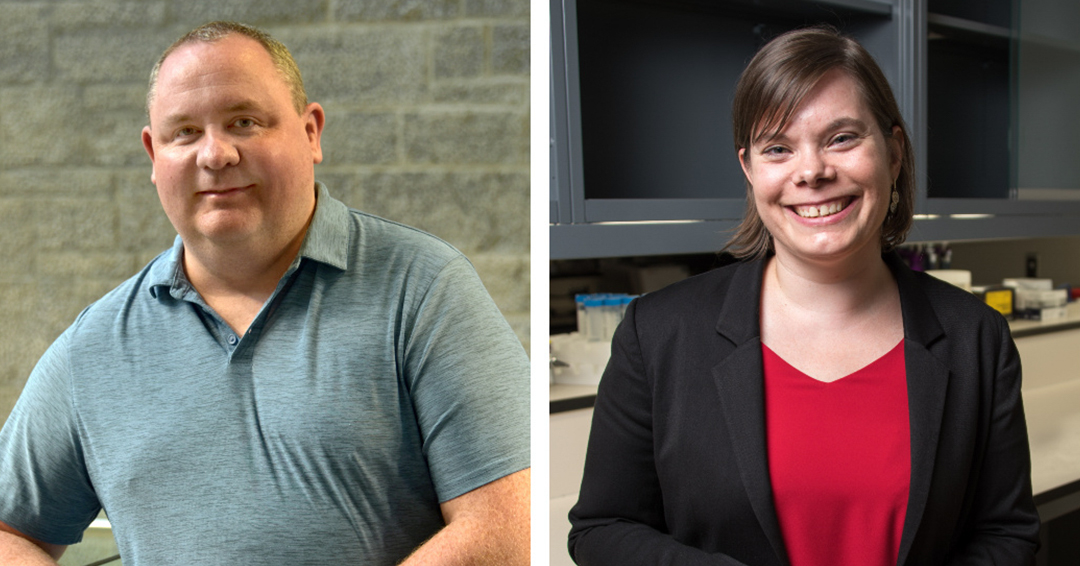
$400,000 will fuel public-private collaboration to discover new disease biomarkers
A new project co-led by Thomas Durcan, PhD, Director of The Neuro’s Early Drug Discovery Unit, and overseen by Mathilde Chaineau, PhD, the EDDU’s program manager, will receive $400,000 in support from Génome Québec. In partnership with Nardin Nakhla and Armstrong Murira from the Montreal-based company Simmunome, Durcan and Chaineau will develop a computational model of amyotrophic lateral sclerosis (ALS) on which to test for new biomarkers and therapeutic targets.
Using cells donated by ALS patients, the team will transfer genomic data related to the disease into the computer model, where they will be analyzed using artificial intelligence tools to find patterns within the data. The team hopes to find unique signatures of ALS, called biomarkers. The impact of therapeutics on these biomarkers can then be tested to assess whether the therapies may benefit ALS patients. In this way, the project will contribute to the improvement of clinical trials and to the reduction of costs related to the development of treatments for ALS.
“Combining our ALS patient-derived cells with Simmunone’s AI expertise will help us lay the groundwork towards identifying biomarkers and potential therapeutic targets not possible through conventional approaches, essential to foster the development of new treatments for this devastating disease,” said Prof. Durcan.
This funding is part of a more than $4.4-million investment by Génome Québec for genomic solutions in health.
“Genomics plays a key role in the future of healthcare,” said Stéphanie Lord-Fontaine, PhD, Vice-President of Scientific Affairs at Génome Québec. “Through these projects, we are investing in research and innovation, to deliver more precise, patient-centered solutions. This support enables the research community to explore new approaches which, in the long term, could have a direct impact on the quality of care and the overall health of the population.”
About Génome Québec
Génome Québec’s mission is to catalyze the development and excellence of genomics research and promote its integration and democratization. It is a pillar of the Québec bioeconomy and contributes to Québec’s influence and its social and sustainable development. The funds invested by Génome Québec are provided by the ministère de l’Économie, de l’Innovation et de l’Énergie du Québec (MEIE), the government of Canada, through Genome Canada, and private partners. To learn more, visit www.genomequebec.com.
